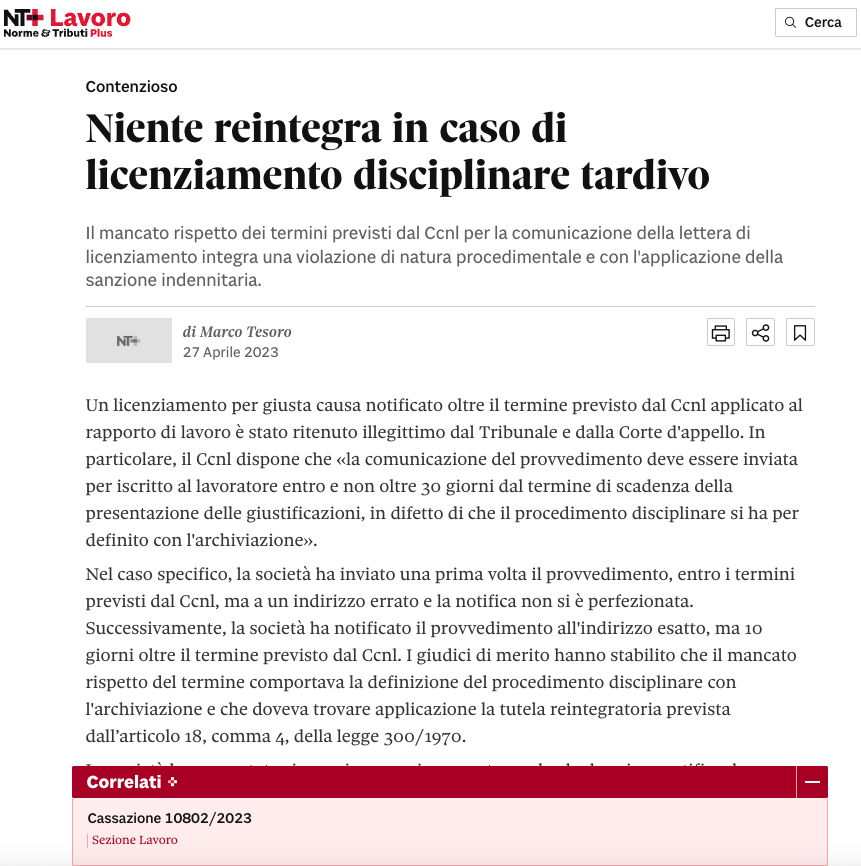Related Posts
Gruppo 24Ore17 April 2024
Reinstatement in case of violation of the repêchage duty
Pubblicato su: Il Sole24Ore - Nt Lavoro - 17/04/2024 Leggi qui
Articles23 January 2024
Union representative dismissed for insulting the company founder on social network
The employee and union representative’s right to criticism is guaranteed by the Constitution. However...


